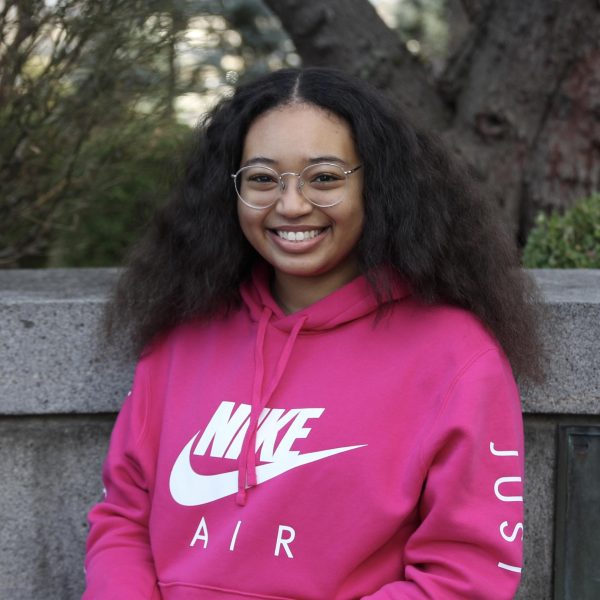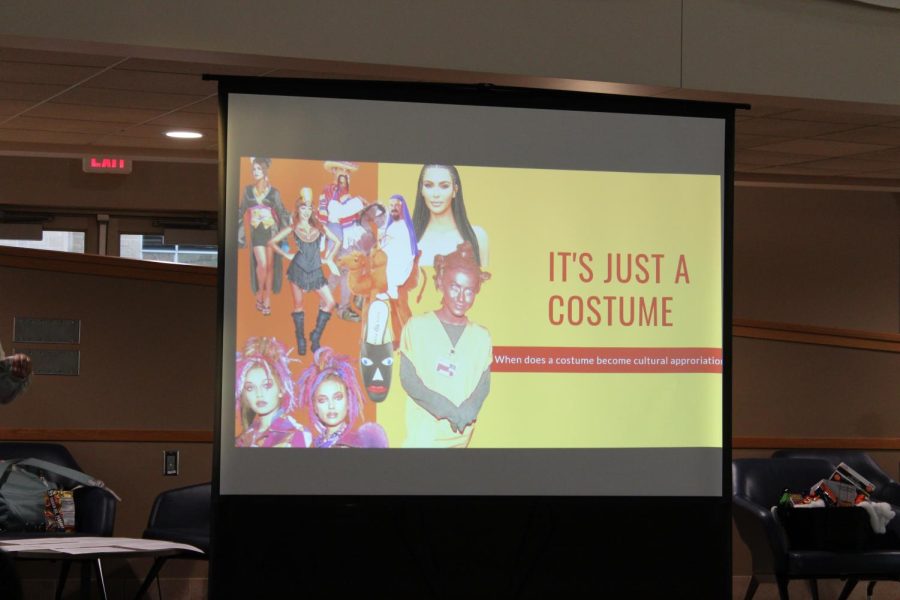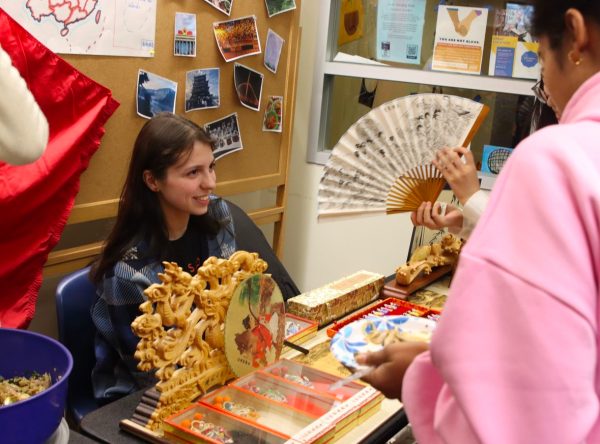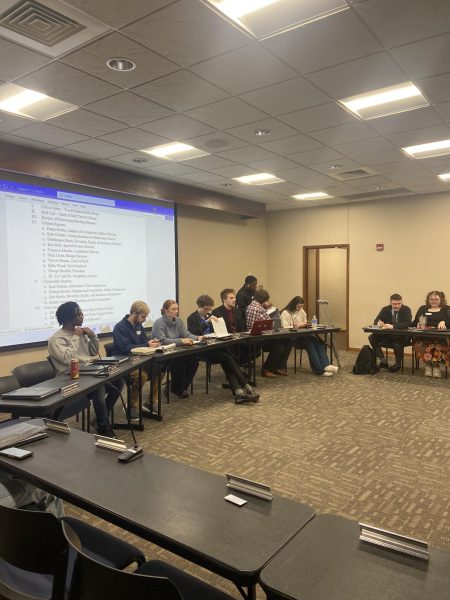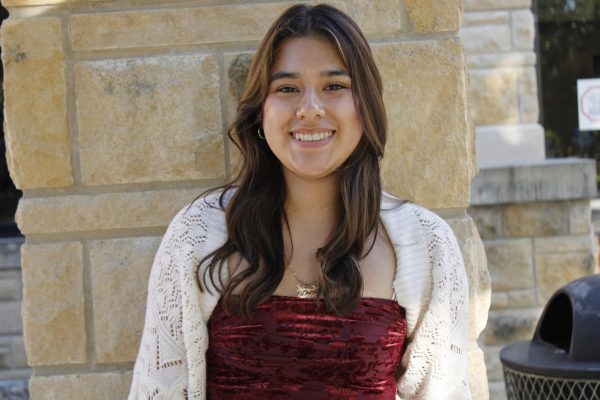Megan Dorantes discusses cultural appropriation and Halloween costumes
Halloween is an extremely popular holiday that children and adults enjoy for the candy, scary movies and most importantly, the costumes. Each year, thousands of people scour stores for the latest Halloween costumes and even create their own using pieces from their closets. Unfortunately due to miseducation, many fall victim to cultural appropriation through their costume choice.
With this in mind, the Campus Activities Board held an event titled “It’s Just A Costume” Friday, Oct. 21 to educate students on cultural appropriation, its effects on society and how it relates to costumes.
Megan Dorantes, the speaker for the event, created a presentation on the topic and began with her own definition of cultural appropriation. She described it as “the process of cultural artifacts that originated from a non-dominant culture, being appropriated by a dominant culture without acknowledgment of creation, societal benefits and respect.”
To describe this issue, Dorantes used real-life examples from the beauty, music, fashion and food/drink industries. She began with a list of celebrities who had outwardly practiced cultural appropriation over the years through their “fashion.” These celebrities included singer Katy Perry dressed as a geisha for a performance, singer Chris Brown in a terrorist costume, actress Julianne Hough in blackface and dressed as Crazy Eyes from the Netflix series “Orange is the New Black” and many more.
Celebrities have also appropriated cultural hairstyles and passed them off as their own. In 1979, actress Bo Derek was depicted in the movie “10” wearing cornrows, a hairstyle created and maintained by Black people. Derek was given credit for this “groundbreaking” hairstyle and people began calling them “Bo braids.” For many years, black women who wore this hairstyle were called “ghetto” or “unprofessional.” Yet, when Derek wore them it was seen as “trendy” and “cool.” Other celebrities, such as Kim Kardashian, have also received backlash for wearing braids without the proper acknowledgment or understanding of their history.
Dorantes went on to describe how cultural appropriation affects women’s bodies. Many women of color are often over-sexualized due to their curves. Dorantes played a music video titled “Baby Got Back,” by Sir Mix-a-Lot released in 1992. At the beginning of the video, two white women are depicted describing a black woman as a “prostitute” and “gross” because of her body shape.
Cultural appropriation is also apparent in the food/drink industry. Recently, Gracie Norton, a wellness influencer, gained attraction for the creation of “spa water,” a drink she’d made by mixing water, cucumber and sugar. Norton began to receive backlash as the water she’d “created” already existed in the Mexican community and is known as “agua fresca.”
Ultimately, dominant cultures receive praise and sometimes even profit off the cultures of minority groups.
Students attending the event found this topic insightful and relative to Washburn University, with it being a predominately white institute. Jenny Tran, a senior in legal studies, spoke on the topic.
“I was familiar with what it is, but I didn’t know how ingrained it was in our system, which was kind of a shock,” Tran said. “We have lots of Caucasian people here and to them, it is just a costume, but to us, it’s literally our culture.”
Raven Petty, sophomore in criminal justice and human services, added to the conversation with her experience of being a person of color at Washburn.
“Most people know that I’m a person of color; they just don’t know what I am. So, they think they can get away with saying certain things and once I say something, they all get a scared look on their face,” Petty said.
Both Tran and Petty agreed that being the only person of color in a classroom can be difficult at times and hope other students recognize this.
To end the presentation, Dorantes encouraged students to correct those practicing cultural appropriation, acknowledge their wrongdoings and treat others the way they want to be treated. She hopes that her presentation provided some insight for students celebrating Halloween this year and urges them to choose their costumes wisely.
Edited By: Alijah McCracken, LeSha’ Davis
Your donation will support the student journalists of Washburn University. Your contribution will allow us to purchase equipment and cover our annual website hosting costs.
